Professor Slavko Krajcar Death: A Look at the Life of Fantastic FER Professor
June 24, 2021 - Following the professor Slavko Krajcar Death on June 18, take a look at the life of an established educator and scientist whose expertise made a significant contribution to Croatian politics in the energy sector.
„The influence of a teacher can never be erased“, or as an American historian Henry Brook Adams put it, „Teachers affect eternity; no one can tell where their influence stops“- these two are just some of the inspirational quotes about teachers you can find with a little assistance from Google.
Students at the Faculty of Electrical Engineering and Computing (FER) at the University of Zagreb are recognized in Croatia for their innovations. At the end of the day, they owe their excellence to the professors that educated them.
One of such professors was Dr. Slavko Krajcar that sadly, as FER official website reported, passed away on June 18, last week.
"Professor, Dr. Slavko Kranjcar made a significant contribution to the Faculty of Electrical Engineering and Computing as he was a dean of the Faculty from 1998-2002, after which he was the head of the department for high voltage and energetics from 2002-2006. He will remain in permanent memory as a respected scientist, expert, and a colleague“, said FER in an official release.
Kranjcar was also the member and the president of the Managing council at Ruđer Bošković Institute (IRB) that also expressed its condolences.
Born on January 14, 1951, Slavko Krajcar enrolled to study in FER in 1969, followed by graduating from Technical High School in Pula. He majored in FER in 1980 and got his Ph.D. in 1988. His scientific and lecture career started in 1974 when he was an assistant on a manufacturing electric energy course. From there on, he mentored various students on different levels, ten of which earned Ph.D. statuses under his guidance.
Kranjcar was active in the media, giving interviews and writing op-pieces on education issues, specifically the education of engineers in the 21st century.
„Krajcar participated on many domestic projects regarding science or economy as well on international scientific and professional projects. Counting just after the year 2000, he participated in over fifty projects, 36 of which he led. He was one of the leading figures in making Croatian Energetic Strategy (which the parliament accepted in 2010) and the Energetic Efficiency Strategy (2008) as well as executive plans on new strategies (2008-2020)“, recalled FER.
They added Fer rewarded Krajcar in 2002 when he received Josip Lončar's golden plaque for his dedicated scientific and educational work. He also received special recognition for developing SRCE- The Computer Centre of the University of Zagreb in 2011, followed by the Ho CIRED award for contribution in developing the field of electro distribution in Croatia. He also received HRO CIGRE recognition in 2018 for the overall contribution to the electro energetic activities in the Republic of Croatia and the Nikola Tesla Award in 2020 for the contribution to science, education, and profession in the field of electrical engineering and computer sciences and application of those technologies.
Believe it or not, Krajcar even made time to contribute to art and culture as well. He published two books of poetry, edited four books regarding cultural issues, and was the president of the Association for Čakavski dialect (distinct for the use of Ča as a word for what and conversated on coastal Croatia).
Learn more about Croatian inventions & discoveries: from Tesla to Rimac on our TC page.
For more about science in Croatia, follow TCN's dedicated page.
Croatia Registers 101 New Coronavirus Cases, Two Deaths
ZAGREB, 24 June 2021 - In the past 24 hours, Croatia registered 101 new COVID cases and two people have died, the national COVID response team said on Thursday.
There are currently 542 active cases in the country and 241 people are in hospital treatment, 15 of whom are on ventilators.
Since the first case was registered in Croatia in February last year, there have been a total of 359,403 cases of contagion registered in Croatia, 74 of whom were registered in the past 24 hours.
There are 3,818 people in self-isolation.
To date, a total of 2,124,510 people have been tested, including 5,051 in the past 24 hours.
As of 23 June, a total of 2,424,695 doses of vaccine had been administered, with 1,462,287 receiving at least one dose and 962,408 receiving both shots.
For all you need to know about coronavirus specific to Croatia, including travel, border, and quarantine rules, as well as the locations of vaccination points and testing centers across the country, make sure to bookmark our dedicated COVID-19 section and select your preferred language.
Standard of Living in Croatia in 2020 a Third Lower Than EU Average
ZAGREB, 24 June 2021 - The standard of living in Croatia in the pandemic year 2020 was a third lower than the European Union average, despite the fact that consumer price levels were a third lower, according to data from the EU statistical office Eurostat.
Eurostat measures the standard of living by actual individual consumption per capita, which shows how many goods and services individuals consumed, regardless of whether they paid for them by themselves or the costs were borne by their governments or non-governmental organizations. Actual individual consumption per capita is expressed in purchasing power standards, which enables the elimination of the differences in price levels between countries.
Last year, the highest standard, as expressed by actual individual consumption per capita, was registered in Luxembourg and was 31% higher than the EU average.
Italy, Cyprus, and Lithuania closest to average
Luxembourg was followed by Germany and Denmark, where the standard was 23% and 21% higher than the average respectively. Cyprus, Italy, and Lithuania were closest to the average, where actual individual consumption per capita was up to 4% lower than the EU average.
Spain, the Czech Republic, Portugal, Malta, Poland, and Slovenia registered actual individual consumption per capita of between 10% and 20% below the EU average.
Croatia alongside Bulgaria
In Romania, Estonia, Greece, Slovakia, Latvia, and Hungary, actual individual consumption was between 20% and 30% lower than the EU average, while Croatia and Bulgaria had the lowest standards. Actual individual consumption per capita in Croatia in 2020 was 33% below the EU average, compared with 34% in 2019, while Bulgaria was 39% below the EU average.
Highest consumer prices in Luxembourg
Eurostat also showed differences in consumer prices between EU member states, using purchasing power standards.
Luxembourg had the highest price level index for actual individual consumption in 2020, half as high as the EU average. It was followed by Denmark, Sweden; Ireland, and Finland with price levels more than 20% higher than the average.
Consumer prices in Belgium, France, Germany, and Italy were slightly above the EU average, while those in Spain and Cyprus were up to 10% lower. Price levels in Latvia and the Czech Republic were about 30% below the average.
Croatia placed alongside Latvia, with price levels 35% lower than the EU average.
Prices in Hungary, Poland, and Bulgaria were between 40% and 50% below the EU average.
GDP per capita
Luxembourg remained in the top spot as the country with the highest GDP per capita in the European Union. Expressed in purchasing power standards, it was two and a half times higher than the EU average.
Luxembourg was followed by Ireland, with GDP per capita slightly more than twice as high as the EU average, and Denmark, the Netherlands, Austria, Sweden, and Germany with GDPs roughly a fifth higher than the average.
France's GDP per capita was slightly above the average and Malta's slightly below, while Italy and the Czech Republic had a GDP per capita of less than 10% below the average.
The countries with GDPs per capita of between 10% and 20% below the EU average included Slovenia, Lithuania, Cyprus, Estonia, and Spain. Portugal, Poland, Hungary, Latvia, Slovakia, and Romania had GDPs per capita of between 20% and 30% lower than the average.
Croatia placed alongside Greece, with a GDP per capita of 36% below the EU average, up from 35% in 2019. Bulgaria was at the bottom of the ranking with a GDP per capita of 45% below the EU average.
For more, follow our lifestyle section.
New Labor Law in Croatia: WFH Requires Consent of Both the Worker And the Employer
June 24th, 2021 - The social partners held the first official meeting to draft a new Labor Law in Croatia, one in a series expected in the coming weeks and months.
Poslovni reports, State Secretary Dragan Jelic said that the negotiations would last until the end of this year. Before the end of the year, the first version of the agreed law is expected, which will pass the parliamentary procedure in two readings. The new Labor Law should enter into force on July 1, 2022, i.e., in a year, and the first meeting is just the beginning of the upcoming marathon.
After the meeting, Jelic said that the discussion was constructive and concrete, and they agreed on the methodology according to which they will work. In any case, the existing Labor Law will not be amended. Still, a new, more modern law will be drafted, incorporating innovations that have appeared in teleworking, remote work, additional work, and platform work, which is quite popular. However, as soon as a new law is passed, it is likely that all the old and painful topics that both employers and unions have highlighted in all previous openings of the "workers' constitution" will be opened.
It is too early to say exactly how everything will look because certain topics will be opened in separate working groups. For example, on the first day, they did not touch on severance pay, which will be for permanent employees, but also people working part-time. There is a common view that there is too much work to be done, but there are different opinions that its share will decrease.
"The impression is that different attitudes stand out at the beginning, but we will try to bring them closer with a quality discussion. We, as the proposer of the law, have the final word, but we will not do anything overnight and on our knees ", promised the State Secretary of the Minister of Labor.
Regarding teleworking and work from home, obligations related to safety at work will be defined, for such work will require the mutual consent of the employee and the employer and an addendum to the existing employment contract.
"In this year and a half, working from home has worked relatively well, some have signed an addendum to the contract, some have not, there have been some disputes over the cost of working from home, but this has been resolved in agreement with the union. Employers demand that compensation for work expenses from home be tax-free. We will see ", pointed out Jelic.
When it comes to the practice of working from home so far, Sever told reporters that there were problems. The workers, he says, were unilaterally instructed to work from home, some complaining that their employers took away their vacation days, did not recognize expenses, did not respect working hours, and were expected to be constantly available for work.
When it comes to fixed-term work, Sever reads that employers would like to transfer a good part of the uncertainty from the existing form of fixed-term work to permanent work, but the unions will not agree to that. They are also categorically against the spread of additional work, which would be harmful to workers' health.
For more news, follow TCN's dedicated page.
Twice as Many Illegal Migrants Reported on Balkan Route as Last Year - Večernji List
ZAGREB, 24 June 2021 - Migratory pressure on Europe is increasing again as the number of people illegally crossing the external borders of the European Union in the first five months of this year reached 47,100, which is an increase of nearly 50 percent compared with the same period last year, Večernji List newspaper said on Thursday.
On the so-called Balkan route, 14,734 illegal attempts to cross the border were reported this year, or 104 percent more than at the same time last year. The Western Balkan countries reported 2,900 such attempts in May, which is twice as many as in May 2020. Most of the illegal migrants using this route come from Syria and Afghanistan.
These are the preliminary data released by the EU border and coast guard agency Frontex, which attributed the increase in numbers to the fact that the borders, which were closed last year because of the COVID-19 outbreak, are now being reopened.
The greatest pressure still comes from the Central Mediterranean route as nearly 4,200 migrants used this route to get to Europe in May, nearly twice as many as at the same time last year. Between January and May this year the number of illegal crossings on this route more than doubled, reaching 15,700.
Croatia lies on the Balkan route, with most migrants using it as a transit country on their way to other destinations in the EU. Even most asylum seekers, who arrive in Croatia from refugee camps in Greece and Italy under an EU relocation program, leave. Of 250 resettled persons whom Croatia accepted as part of the EU solidarity mechanism, 67 or 26.4 percent have stayed in Croatia.
That migrants do not see Croatia as their destination but only as a barrier on their way to other destinations is shown by the fact that Slovenia returned 9,871 illegal migrants to Croatia last year and 607 in the first four months of this year.
Croatia has seen an increase in the number of migrants illegally crossing its border this year. In the first quarter of 2021, 3,267 such cases were registered, which is at last year's levels, while compared with May 2019 their number increased by 17 percent. Most of the illegal migrants come from Bosnia and Herzegovina, which is finding it increasingly difficult to cope with the burden of migration, Večernji List said.
For more news about Croatia, visit our dedicated page.
Matić: No One is Advocating Abortion, It is Women's Choice
ZAGREB, 24 June 2021 - Croatian MEP Predrag Matić said on Wednesday that it was a lie that his report on sexual and reproductive health, which will be put to a vote in the European Parliament on Thursday, promoted abortion.
"No one is advocating abortion, particularly not as a method of contraception," Matić said during the plenary meeting of the European Parliament.
"The number of abortions in countries where abortion is allowed is the same as in countries where it is banned. Only in these latter countries, it poses a risk to women's health as 23,000 women throughout the world die from it every year," he added.
Presenting his report, Matić said that abortion is a very difficult choice for every woman, but that in the end, every woman must have a choice.
"No one is denying doctors the right to refuse to provide a medical service for personal reasons, but at the same time the health institution must ensure a doctor who will provide the requested service," Matić said, adding that the resolution clearly says that health care falls within the competence of member states.
Matić, a member of the Croatian Social Democratic Party and the Socialists & Democrats group in the European Parliament, said he had received "angry and disgusting" criticisms and hundreds of hate emails over his report.
He said that by voting for this non-legislative resolution, men would show respect for women's rights and women would show self-respect, while all members of the European Parliament should show what kind of Europe they wanted.
Matić said that opponents of the resolution were ready to ignore the parts of it speaking of improving women's health only to focus on the issue of abortion using "an unbelievable amount of lies and manipulation."
"Tomorrow is a great day for Europe and the entire progressive world. Tomorrow we decide on positioning Europe as a community that chooses to live in the 21st or the 17th century. Don't let history remember us as the latter ones," Matić concluded.
The report was criticized by parties on the right side of the political spectrum for referring to abortion as a human right, for treating the issue of conscientious objection as a problem, and for sidestepping the powers of EU member states.
Croatian MEP Karlo Ressler (HDZ/EPP) said that the resolution uses confusing language equating conscientious objection with denial of medical care, while his colleague Tomislav Sokol said that Matić, by advocating sexual education in school based on gender ideology, was overstepping the competencies of the EU and telling the member states what they should teach in their own curricula.
"Matić drew up the report probably under the influence of foreign lobbies that promote abortion. This stems from the fact that in the report Matić gives an arbitrary definition of sexual and reproductive health that is not based on international law," Sokol said, demanding that the disputed parts of the report should be voted on separately.
For more news about Croatia, visit our dedicated page.
Basketball Legend Magic Johnson Returns to Dubrovnik!
24 June 2021 - Magic Johnson returns to Dubrovnik with his wife on holiday. This is his second time in the city he fell in love with last year.
If there ever was a globally recongisable name in the world of sports, it is that of Magic Johnson. This legendary American reached the pinnacle of basketball success while playing for LA Lakers. He was also one of the key players in the original „Dream Team“.
He played 13 seasons for LA Lakers and won three NBA Most Valuable Player awards. The basketball Hall of Fame honoured him two times, once for his games under LA Lakers and once for his contribution to the success of the USA national squad. His average assists record still stands to this day. There are many other sporting achievements in his career, but aside from those, he made headlines in 1991 by announcing he has contracted HIV. Magic Johnson did much to raise awareness of the deadly disease and dispel myths surrounding it.
Fan of Dubrovnik
As Dubrovacki Vjesnik reports, Magic Johnson's visit to Dubrovnik means he kept his promise of returning to the city. Johnson visited Croatia last year. While enjoying Dubrovnik's Stradun he told a member of the media he finds the place beautiful and will be returning. Not even a year has passed and he is once again seen smiling with his wife Cookie on one of Croatia's most beautiful streets. It is unclear if Johnson will continue the trip to other parts of the country as he did last year.
Regardless of his travel plans, low numbers of guests on the streets of Dubrovnik seem to be attracting plenty of wealthy travellers who aim to avoid crowded destinations. While many in the city complain about lack of travellers and revenue, half-empty city streets are a perfect draw for guests looking to enjoy the medieval city without the hassle of overcrowding.
For more, follow our dedicated lifestyle section.
First Camino Imota Weekend Attracted Several Pilgrims to Imotski Region
June 24, 2021 - The first Camino Imota weekend, organized by the Imotski Tourist Board and the Brotherhood of St. James, gathered more than a hundred participants in three days. It was the first organized pilgrimage along the new Camino Imota route. In addition to the pilgrimage, an international round table, "Camino pilgrimage in the 21st century," and an exhibition of photographs were held.
The Imota Tourist Board organized a free bus transport from Imotski to the starting points of certain sections and a return to Imotski after the pilgrimage, whichh speaks volumes about the great interest in participating in the Camino Imota weekend, reports HRTurizam.
“Interest in the Camino Imota route, according to the number of pilgrims, but also according to the number of interested people who want to pass the route, is great. The Facebook group quickly gathered more than 600 members. On Tuesday, two days after the event, we already had the first individual pilgrims, who decided to cross the Camino Imota trail," said Luka Kolovrat, director of the Imota Tourist Board.
Several pilgrims walked the new Camino Imota route. Despite the high temperatures, their impressions are very positive, and this is not surprising given the spectacular landscape offered by the Imotski region. However, besides the natural beauties on the Camino Imota route, there are also numerous sacral buildings and significant sites of natural and cultural heritage. Pilgrims received commemorative stamps in their pilgrimage passports, which serve as a confirmation of the route crossed - Camino Imota Compostela.
“On the first day, we had about 40 pilgrims, on the second about 60, and the third about 90. Some of them walked all three days, and some only one, so we can say that more than 100 pilgrims visited the first Camino Imota weekend. We are pleased with the response, and participants expressed satisfaction with the trail. About twenty of them already had experience with Camino routes, especially the one starting from France. When they passed the route, they shared their impressions with us and gave us suggestions. According to them, the Camino Imota reminds of the trail through Galicia," says Kolovrat.
And for Camino Imota to fully justify its name, it is essential to cooperate with the local population, which on this first pilgrimage proved to be an excellent host by offering pilgrims refreshments along the way.
“In April, we held meetings with parish priests who are on the route and introduced them to our plans. They passed it on to their parishioners, which gave excellent results, and the residents of this area were pleased to help the pilgrims," said Kolovrat.
In addition to the pilgrimage on the new route, Camino Imota weekend also had an accompanying program in which a round table called "Camino pilgrimage in the 21st century" was included. The roundtable brought together representatives of Camino associations, priests, theologians, and scientists from as many as nine countries. A special guest was Igor Vidmar, president of the Brotherhood of St. James from Slovenia, who announced the arrival of Slovenian pilgrims on the Camino Imota trail next year.
“The Round Table, which was actually a video conference, discussed why people choose the Camino pilgrimage, whether it is for religious or adventurous reasons, and why the pilgrimage has gained so much popularity. At the moment, about one and a half million people are making a pilgrimage to the Camino, and that number is increasing every year," Kolovrat emphasizes.
The first Camino Imota weekend met the organizers' expectations, who are now facing the continuation of work on the route itself, to be even better marked. A mobile application is also planned, and a website is already online and should be filled with information about the route, instructions, and practical tips for pilgrims in the next few days.
“After the first Camino Imota weekend, which was a great success, we are even more optimistic, and I believe that this route will come to life in the future. Interested individuals already contact us, but also entire parishes, who want to take an organized walk along the trail," emphasizes Kolovrat and adds that the Camino Imota weekend also served as an agreement on intensifying works on the second phase, i.e., connecting the route to Sinj and Medjugorje.
For more, follow our travel section.
Olympic Qualifying Preparations in Split: Croatia Basketball Tops Puerto Rico in Friendly
June 24, 2021 - Croatia basketball topped Puerto in a friendly match during their Olympic qualifying preparations in Split.
The Croatia men's national team defeated Puerto Rico 74-59 in the preparatory match for the Olympic qualifying tournament in Split at Spaladium arena next week.
After an even first quarter, Croatia pulled ahead in the second and, despite a poorer shooting performance (three-pointers 2-18), easily controlled the game until the end. It should be emphasized that Croatia will be at an even higher level in the Olympic qualifying tournament, especially when Bojan Bogdanović officially joins the team. Bojan arrived in Split on Wednesday and followed the course of events from the bench.
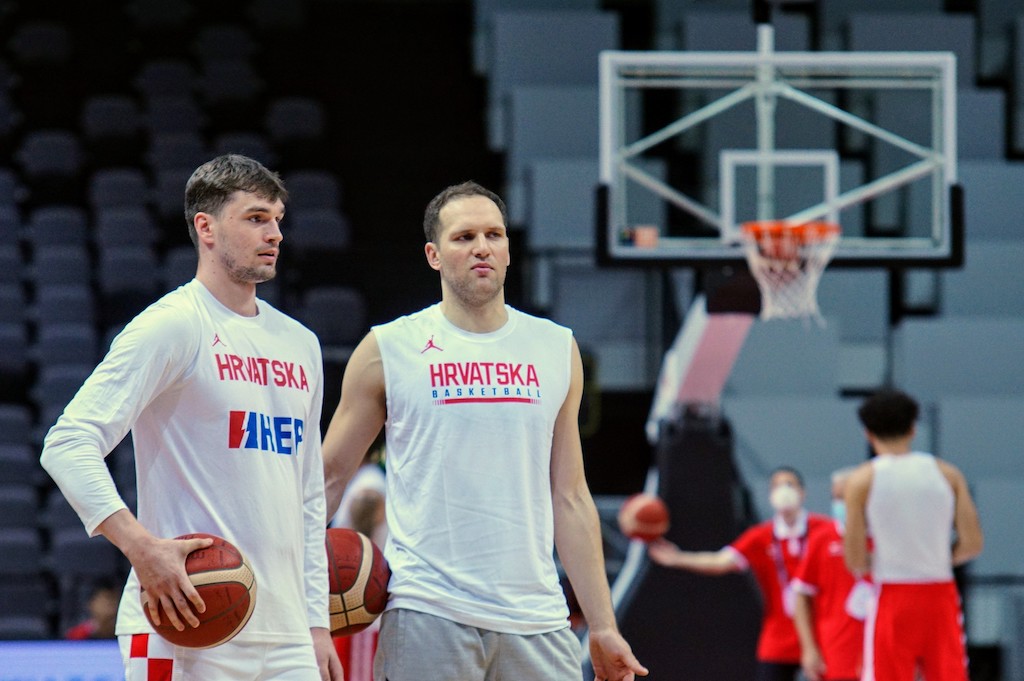
Burak Canboy
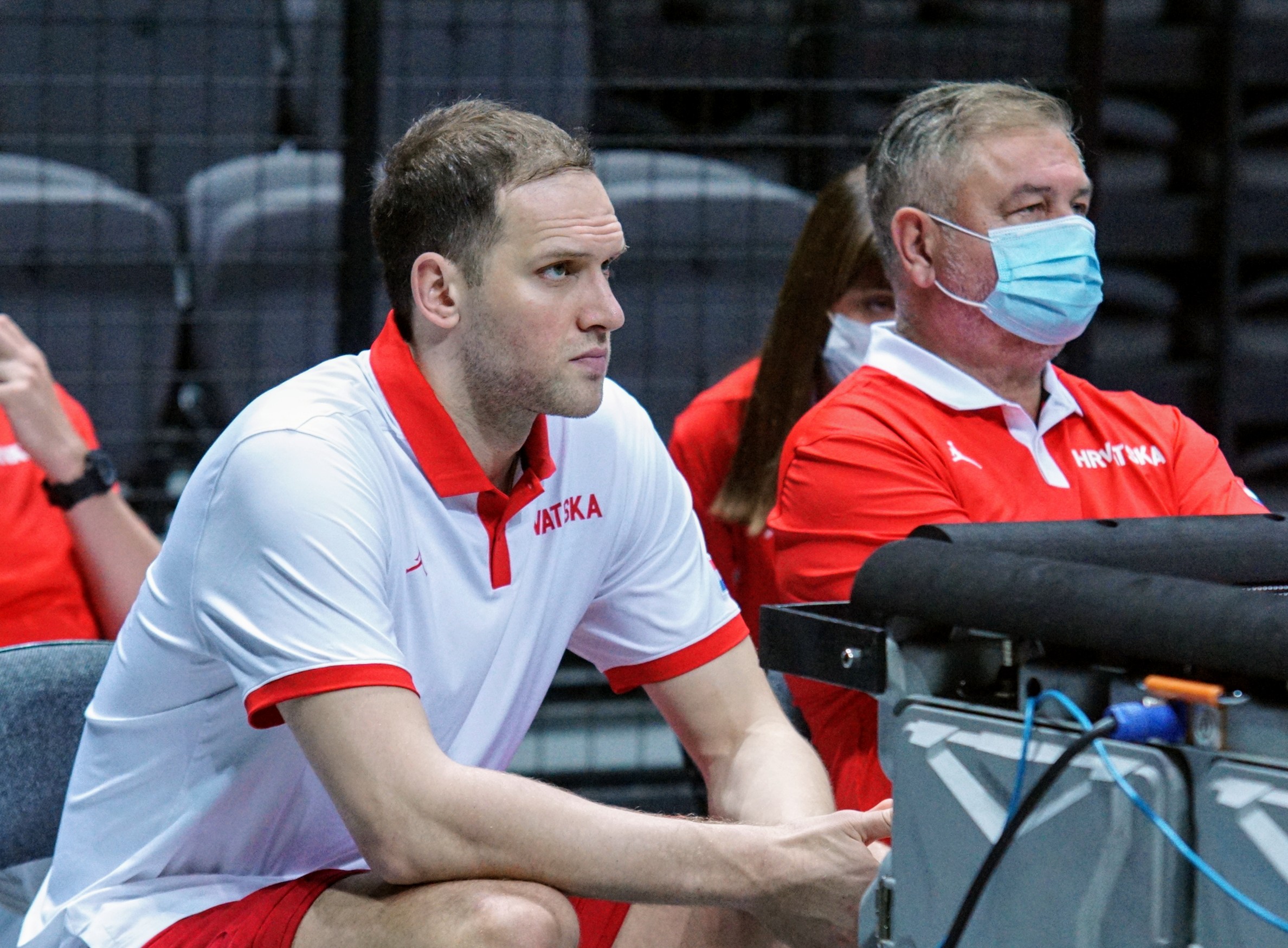
Burak Canboy
Croatia played an excellent three quarters defensively and the chemistry and the spirit of unity can be felt in the national team.
It should be mentioned that Mario Hezonja is in great form. He scored 13 points with 6 assists and 3 rebounds. Miro Bilan had 3 rebounds with 15 points, and Ante Žižić (11 points, 5 rebounds) gives great confidence to his teammates by playing under the basket.
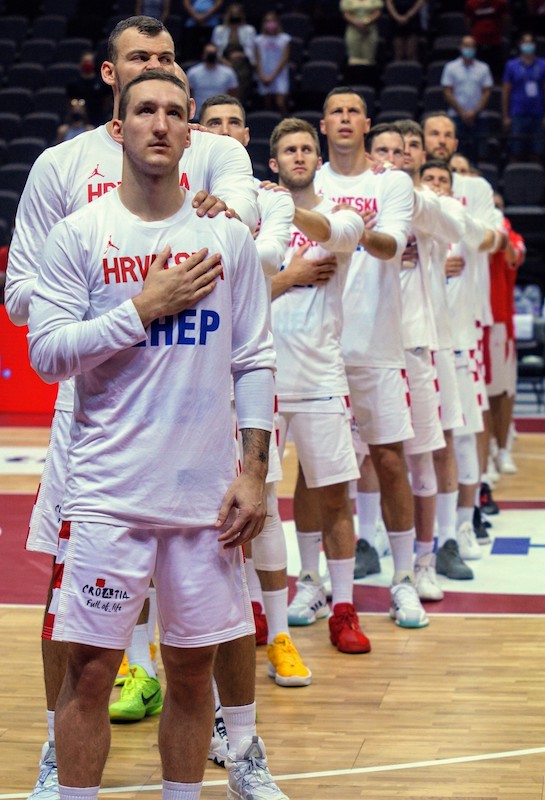
Burak Canboy
Although Puerto Rico is behind Slovenia in terms of quality, Croatia is certainly improving. And at the right time.
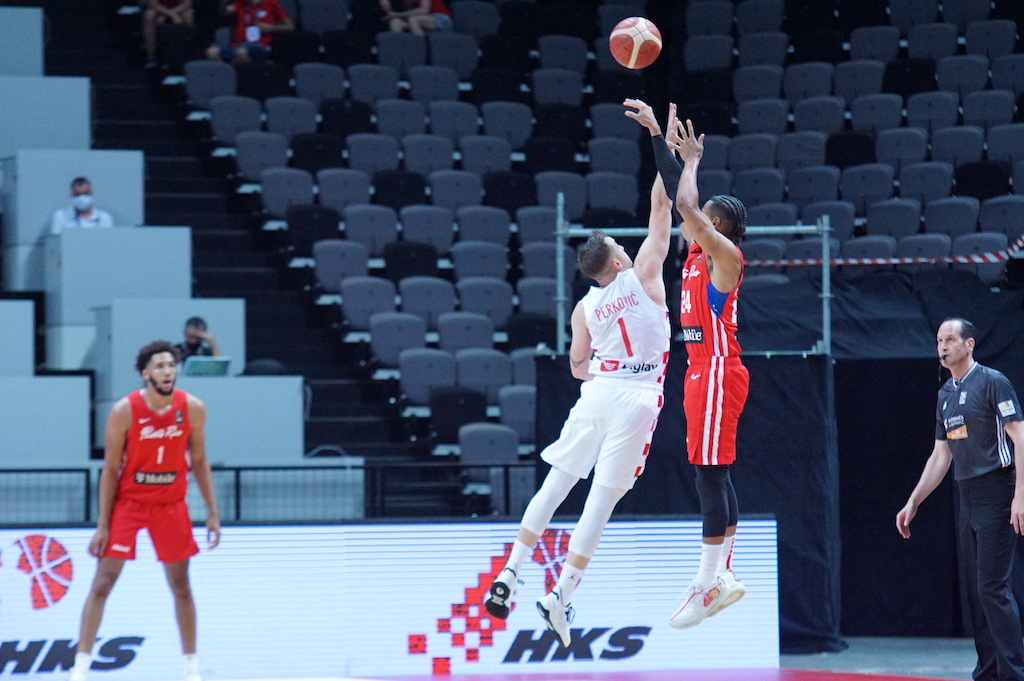
Burak Canboy
Veljko Mršić - Croatia coach
"We played a good game, above all great in defense, except for the first 10 minutes. I would say that the defensive performance is in line with what we showed in the first four qualifying matches, the European Championship. The attack worked well at times. However, I expect it to be better, more fluid and to get rid of the ball faster. Following that was our game in the final quarter. That's what we want. If we play that way, we will have many good attacking positions, and the shots will start to come in. Today we shot badly, but most of those shots were open shots from crafted actions, so that doesn’t worry me.

Burak Canboy
Last night we had a solid two-hour training, and the players were certainly tired from it. We’re missing two players who are proudly playing in the NBA Western Conference Finals, and we can’t use them. We will play for them in this tournament as well. We have a good team composed of quality players, but our task is to make a top team because that is the only way to achieve the goal we have. We have not placed any imperative, nor do we want to place it. The current imperative is to be better with each new training. To play as a team, keep this level of defense because then no matter what the attack will be, we can be satisfied and have a great chance to go to the Olympics. We will also need a lot of support from the stands. You saw how much that meant to Split in the Croatian Championship finals and then to Višnjik Zadar. We expect something like that in Split as well, for the audience to be the sixth player and to find that path to success together.”
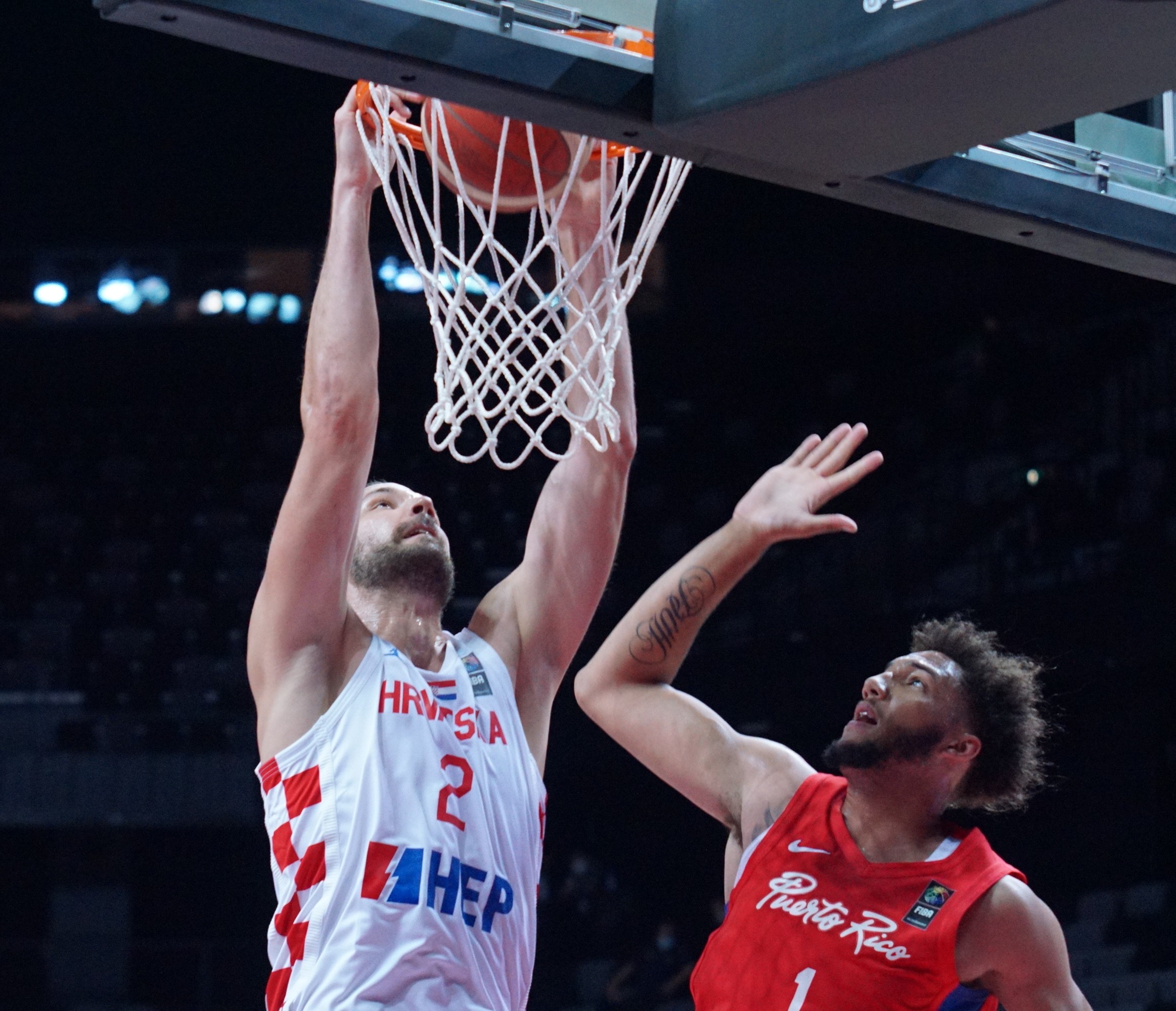
Burak Canboy
Miro Bilan:
"One of the tasks we were given in the locker room was related to a smaller number of received points than against Slovenia. Slovenia went twice over 90, and as the defense has adorned us in the qualifications so far, it is clear why it was imperative, so we succeeded. We played a great 30 minutes as a team with dedicated defense. Until the Olympic qualifying tournament, we have to work on adapting Bogdanović. His appearance instills confidence in us, but because of his quality, it will attract the attention of opposing defenses and open the way for others to make shots. Among other things, opponents will have to prepare a lot more for him and no one doubts that he is a big plus for us. It will surely fall into place. Today, we made some attacks much easier. There's still room, but I don't care about the attack. Hezonja is in great shape, so is Ukić. I don't care about tonight's trio as long as we share assists and play this kind of defense."

Burak Canboy
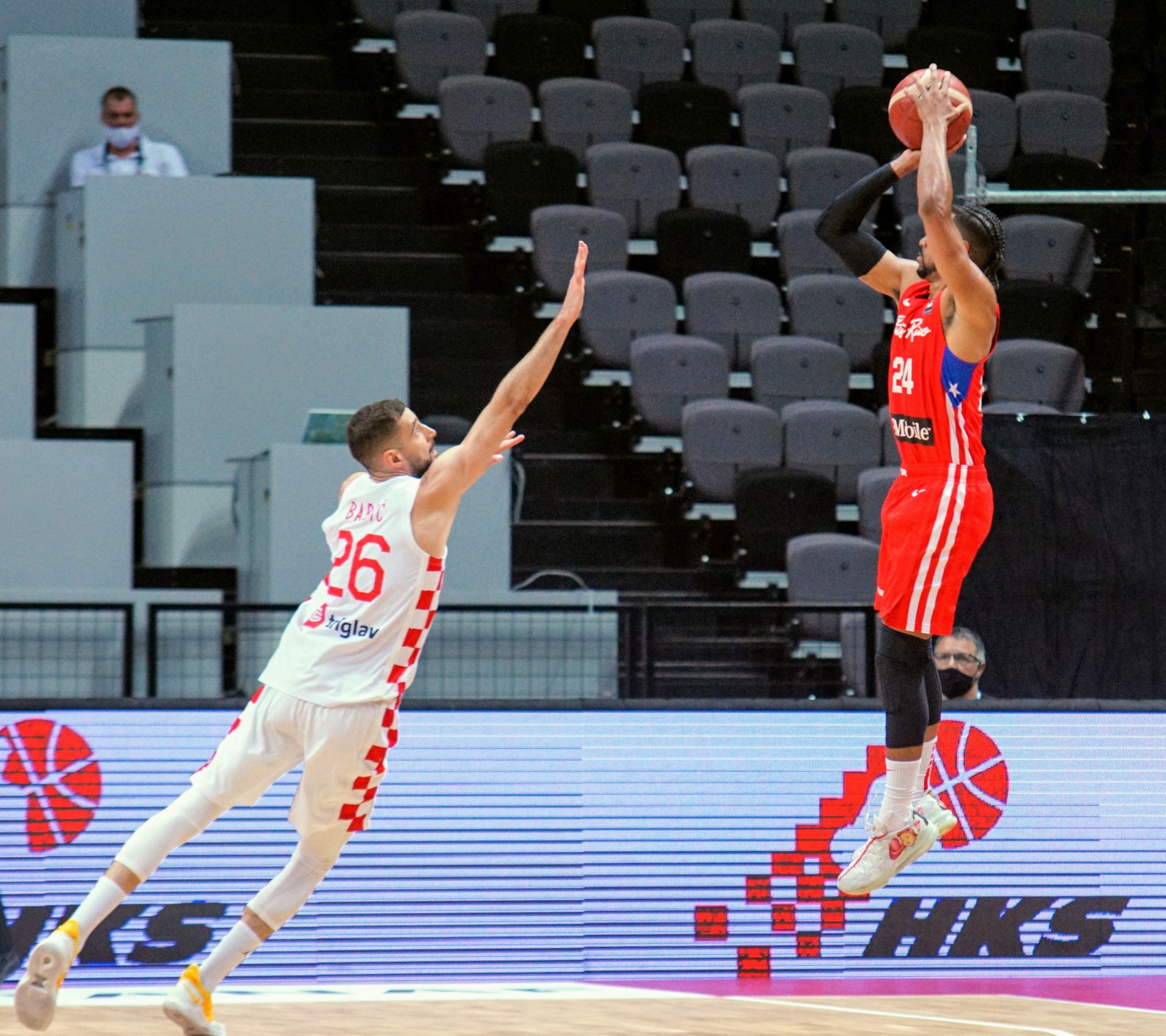
Burak Canboy
Mateo Drežnjak:
"Although it is a friendly match, it is important that we won to raise our self-confidence before the tournament, after two defeats to Slovenia. We started a little more relaxed and then raised the defense, which we did not have in two games against Slovenia. As soon as we raised our aggression in the second quarter and scored a couple of easy points, we were up by 6-7 points, and then by 10, and the advantage grew. Everyone got a chance, and I sincerely hope that there will be more spectators at the qualifiers to support us in a week because it’s easier with the fans. Every match in the tournament will be difficult. The most important thing is to get out of the group first, and then from game to game and, if possible, win the tournament."
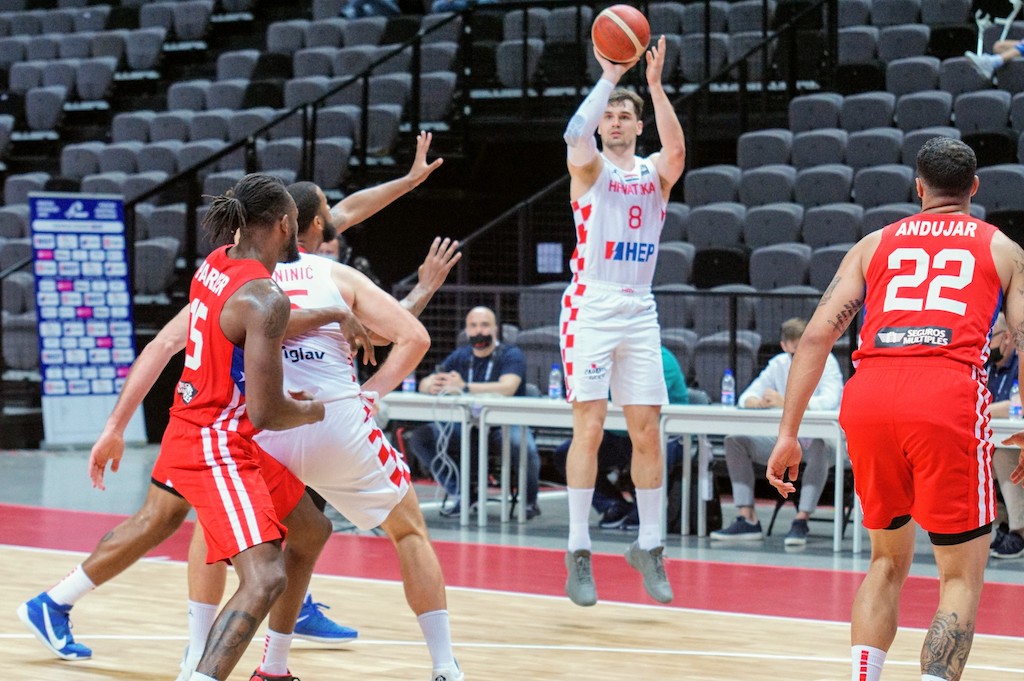
Burak Canboy
Source: HKS
To follow the latest sports news in Croatia, follow TCN's dedicated page.
To learn more about sport in Croatia, CLICK HERE.
Marina Tribunj Enters D-Marin Group's Impressive Portfolio
June the 24th, 2021 - Yet another Croatian marina, this time Marina Tribunj in Sibenik-Knin County, has entered D-Marin's already very impressive international portfolio.
As Poslovni Dnevnik/Marija Crnjak writes, the well known global marina network of the D-Marin Group is now richer for yet another beautiful Croatian marina - Marina Tribunj. It is the fourth destination in the Croatian cluster and the fifteenth location in D-Marina's growing portfolio of exclusive nautical destinations across the Mediterranean and the United Arab Emirates, the company reports.
Marina Tribunj is located in the very heart of Dalmatia, between D-Marin Mandalina in nearby Sibenik and D-Marin Dalmatia, both of which are existing destinations from the same network. Marina Tribunj is otherwise quiet boutique marina with a complete service for the servicing and maintenance of vessels, with a total of 220 marine and 50 dry berths that will add 1760 existing berths, as many as D-Marin has in total in all of Croatia. In addition to restaurants and other facilities in the destination, guests of the marina will have at their disposal a fuel/petrol station, various technical services, restaurants and accommodation facilities.
Commenting on the latest acquisition of the D-Marin Group, Chief Executive Officer Oliver Dörschuck said: “We're pleased that Marina Tribunj is becoming part of our group's network. The marina has everything a boater might need: great facilities and excellent service provided by an experienced marina team, all in a location that guarantees sailors the best sailing experience. This is our fourth investment in the Croatian tourism sector and we believe that excellent road and air connections will enable travel even in the most challenging times, and such an approach, along with top destinations, creates a very attractive offer for our guests.''
The director of Marina Tribunj, Tomislav Paskvalin, added: “Our team is delighted with the fact that we're going to become part of the D-Marin group. A high standard of service is our priority and a common mission we all share, and the possibility of sailing to numerous destinations across Croatia is an excellent development opportunity for Marina Tribunj.''
D-Marin operates fifteen unique marinas here in Croatia, as well as in Montenegro, Greece, Turkey and the United Arab Emirates, with a total of 7,150 berths.
And if you need a dry dock or stainless steel equipment near Sibenik you can find it on this link.
For more, follow our business section.


